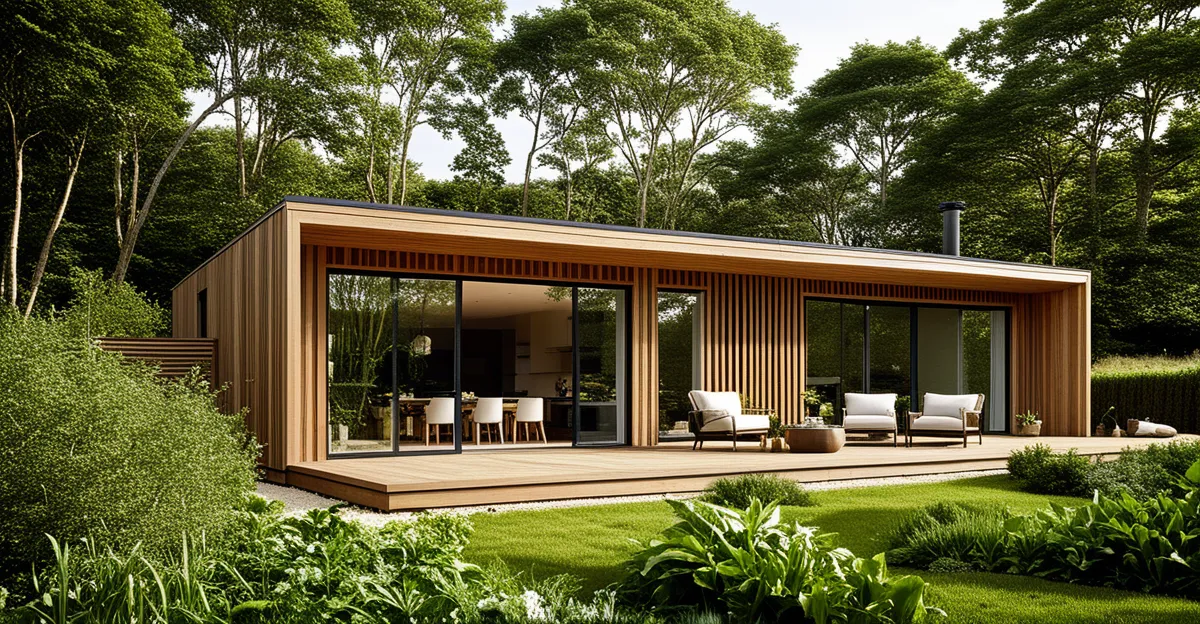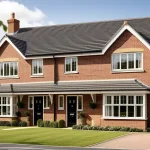Energy Savings and Lower Utility Costs
Energy efficiency is a cornerstone of sustainable home improvements and plays a significant role in achieving substantial energy savings and reduced utility bills. Implementing energy-efficient appliances such as LED lighting, smart thermostats, and ENERGY STAR-rated refrigerators directly decreases electricity consumption. Likewise, upgrading insulation in walls, attics, and floors minimizes heat loss and gain, which reduces heating and cooling energy needs throughout the year.
Quantifying these benefits, studies show that homes with proper insulation and energy-efficient upgrades can lower utility costs by 20% to 50%. For example, replacing old windows with double or triple-glazed alternatives reduces drafts and improves temperature control, leading to noticeable savings on heating bills. Similarly, installing programmable thermostats optimizes energy use by adjusting temperatures automatically when the home is unoccupied, adding to overall energy savings.
Also to read : What Are the Secrets to Creating a Cozy Home Interior?
Beyond monthly savings, these improvements also contribute to a broader commitment to sustainable upgrades by reducing the home’s environmental footprint. Prioritizing such green building practices not only cuts costs but aligns with responsible living, creating measurable benefits that extend beyond personal finance. Making these adjustments ensures that your household operates more efficiently, providing both economic and environmental value.
Major Benefits of Sustainable Home Improvements
Sustainable home improvements deliver multiple advantages beyond immediate energy savings. One of the foremost benefits is the significant increase in property value. Homes featuring eco-friendly renovations often command higher prices in the market due to growing buyer demand for energy efficiency and green building features. Studies consistently show that incorporating sustainable elements like solar panels, efficient HVAC systems, or green roofs can boost home resale potential and attract environmentally conscious buyers.
Also to see : What are the latest UK home lighting trends?
Moreover, these improvements foster healthier indoor environments. Using non-toxic materials and enhancing ventilation systems improve indoor air quality, reducing allergens and pollutants. This translates to tangible health benefits, such as fewer respiratory issues and better overall well-being for occupants. Improved thermal comfort is another direct result of sustainable upgrades, ensuring more stable indoor temperatures and contributing to psychological comfort.
Beyond personal benefits, sustainable home improvements align with broader goals of environmental stewardship by lowering a home’s carbon footprint. Green building practices reduce energy consumption and waste generation, supporting the transition to sustainable living at a community and global scale. This dual impact—enhancing living conditions while preserving environmental resources—makes sustainable upgrades a wise, forward-thinking investment.
Major Benefits of Sustainable Home Improvements
Sustainable home improvements offer compelling advantages that extend well beyond simple energy savings. Notably, these improvements significantly increase property value, as eco-friendly renovation elements are increasingly sought after by buyers. Homes with visible commitments to energy efficiency and green building practices attract more interest, often resulting in faster sales and higher asking prices. For example, incorporating solar panels, efficient HVAC systems, or energy-efficient windows presents a strong selling point, making the property more appealing in a competitive market.
Apart from financial benefits, sustainable home improvements enhance indoor environments by reducing exposure to pollutants and allergens. By focusing on eco-friendly renovation materials and improved ventilation, homeowners enjoy better indoor air quality, which leads to fewer respiratory problems and overall better health. Enhanced thermal comfort is also a major factor: sustainable upgrades stabilize indoor temperatures, minimizing drafts and temperature fluctuations, thus promoting psychological well-being and daily comfort.
These results stem from a holistic approach to green building that prioritizes both environmental and personal health. Sustainable home improvements reduce the energy demand of a house while simultaneously creating spaces that support occupant well-being. This dual effect not only benefits the homeowner but also contributes to a more sustainable future by encouraging responsible construction and renovation practices.
Major Benefits of Sustainable Home Improvements
Sustainable home improvements deliver valuable advantages that markedly enhance a home’s overall value and living quality. By integrating energy efficiency measures and embracing green building principles, homeowners not only reduce utility expenses but also increase the market appeal and long-term resale value of their property. Research consistently shows that buyers are increasingly drawn to residences boasting eco-friendly renovation features, such as solar panels, energy-efficient windows, and advanced HVAC systems. These elements serve as tangible indicators of future cost savings and environmental responsibility, making the home more competitive in the real estate market.
Beyond financial gains, sustainable home improvements contribute significantly to healthier indoor environments. Selecting non-toxic materials and upgrading ventilation systems are central to improving indoor air quality, which directly affects occupant well-being. Reduced exposure to pollutants and allergens leads to fewer respiratory issues, while improved air circulation enhances comfort levels. Furthermore, enhancing thermal insulation and efficiency creates a stable indoor climate, minimizing temperature fluctuations and increasing psychological comfort. These benefits collectively support a higher quality of life within the home.
In summary, sustainable home improvements combine economic, health, and comfort advantages, making them a wise investment for homeowners. Embracing this approach not only prepares homes for future market demands but also fosters a healthier, more comfortable living space aligned with eco-conscious values.
Major Benefits of Sustainable Home Improvements
Sustainable home improvements provide a multifaceted boost to both the financial and living aspects of a property. Central to this is enhanced energy efficiency, which not only leads to significant energy savings but also attracts modern buyers who value lower utility costs and environmentally responsible homes. These improvements, such as installing advanced HVAC systems or upgraded insulation, ensure reduced energy consumption, reinforcing the economic appeal of your home.
Another compelling benefit is the substantial increase in property value. Eco-conscious buyers actively seek out homes featuring green building elements like solar panels and energy-efficient windows, recognizing these as investments in long-term savings and sustainability. The added market appeal of these features often translates into quicker sales and higher resale prices, making them smart choices for homeowners intent on maximizing their property’s worth.
Health and comfort also stand out as vital outcomes of sustainable upgrades. Employing eco-friendly renovation materials and upgrading ventilation systems significantly improve indoor air quality, reducing exposure to allergens and harmful pollutants. This improvement directly supports occupant well-being by lessening respiratory issues and enhancing overall comfort. Enhanced insulation and smarter design choices stabilize indoor temperatures, promoting psychological well-being alongside physical comfort.
Together, these advantages underline how sustainable home improvements effectively merge economic value, health benefits, and environmental stewardship into one cohesive investment.
Major Benefits of Sustainable Home Improvements
Sustainable home improvements deliver a range of advantages centered on energy efficiency, green building practices, and eco-friendly renovation methods that collectively enhance both the economic and living quality of a home. These improvements contribute to substantial energy savings, reducing utility costs by optimizing how energy is consumed and conserved within the household. By integrating advanced insulation, efficient HVAC systems, and energy-saving appliances, homeowners reap ongoing financial benefits through lower utility bills.
In addition to cutting expenses, sustainable upgrades significantly boost property value. The inclusion of green building elements such as solar panels and energy-efficient windows attracts buyers increasingly seeking environmentally responsible homes. This heightened market appeal not only accelerates home resale but also often commands higher sale prices, reflecting the growing importance of sustainable features in real estate.
Health and comfort benefits also arise from smart eco-friendly renovation choices. Selecting non-toxic materials and enhancing ventilation systems improves indoor air quality, which reduces occupant exposure to allergens and pollutants. Better air circulation and superior thermal insulation foster stable indoor temperatures and psychological comfort, promoting overall occupant well-being. These elements come together to create living spaces that are safer, more comfortable, and aligned with health-conscious values.
By emphasizing energy efficiency improvements, boosting property value, and enhancing health and comfort, sustainable home improvements represent a comprehensive strategy that serves homeowners financially and promotes long-term well-being.
Major Benefits of Sustainable Home Improvements
Sustainable home improvements offer comprehensive advantages that seamlessly blend energy efficiency, green building, and eco-friendly renovation strategies to enhance both financial and lifestyle aspects of homeownership. These improvements notably increase energy efficiency by integrating advanced technologies and materials that minimize waste and optimize energy use. For example, employing high-performance windows and enhanced insulation reduces heat transfer, which effectively lowers heating and cooling demands, further contributing to ongoing energy savings.
The integration of green building features significantly boosts property value, as today’s buyers prioritize sustainability and cost savings. Homes showcasing eco-friendly attributes such as solar panels, energy-efficient HVAC systems, or sustainable roofing materials command greater interest, often resulting in quicker sales at premium prices. This market appeal stems from the growing recognition that sustainable home improvements are investments in both future utility savings and environmental responsibility.
In addition to financial benefits, eco-friendly renovation methods improve indoor environments by emphasizing non-toxic building materials and enhanced ventilation. These choices increase indoor air quality, diminishing exposure to allergens and pollutants, which leads to measurable health benefits like reduced respiratory ailments. Alongside better air quality, these renovations stabilize indoor temperatures and humidity levels, fostering improved thermal comfort and psychological well-being.
Collectively, the major benefits of sustainable home improvements intersect across economic, health, and environmental domains. This synergy makes adopting energy efficiency and green renovation measures a strategic approach that elevates living standards while supporting broader environmental goals.











